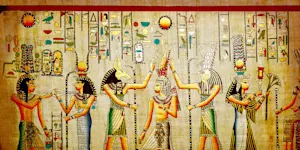What Makes This Word Tick
"Miasma" is a word enveloped in intrigue and mystery. Often associated with an atmosphere of unpleasantness or danger, this term conjures images of foggy marshes and untraceable malaise. It's like the dark cloud in a dramatic play that signifies something wicked coming this way.
If Miasma Were a Person…
Imagine miasma as a Victorian detective, cloaked in a long, swirling cape, solving eerie mysteries under the glow of gas lamps. Always a bit aloof, with eyes that seem to peer through the fog shrouding London's cobblestone streets, this character moves silently but leaves a distinct impression wherever they go.
How This Word Has Changed Over Time
In the 19th century, miasma was a scientific concept, believed to be a noxious form of "bad air" thought to cause diseases like cholera and the plague. As modern medicine advanced, miasma theories lost favor, but the word lingered, now describing anything oppressive or pervasive, from a scandalous atmosphere to the hum of office gossip.
Old Sayings and Proverbs That Use Miasma
While "miasma" isn't typically found in the pages of Bartlett's, you might think of it in sayings like "There's something in the air" with a sinister twist. It invokes the idea that if something feels off, there's a miasma about, unseen but perceptible.
Surprising Facts About Miasma
Did you know that before germ theory, miasma theory was the leading explanation for the spread of diseases? This outdated belief attributed illness to "bad air" rather than bacteria or viruses. It led to citywide clean-ups that inadvertently reduced disease transmission—talk about accidental public health victories!
Out and About With This Word
Today, you might hear "miasma" used to describe anything from a thick fog to an overly perfumed department store. It serves as a poetic way to discuss environments that feel heavy or suffocating, whether physically or emotionally.
Pop Culture Moments Where Miasma Was Used
Pop culture loves a good miasma, especially in genres like horror and noir. Whether it's the toxic aura in a dystopian film or the murky baddies clouding a superhero's path, miasma makes for a great atmospheric antagonist.
The Word in Literature
Miasma wanders through the pages of gothic novels and atmospheric thrillers. Authors like Edgar Allan Poe might have flirted with its essence, using it to evoke a sense of gloom and impending doom. Its florid usage is perfect for setting a suspenseful scene.
Moments in History with Miasma
Think of the Industrial Revolution, with its smokestacks and thick, soot-laden city air. In this era, miasma theories shaped public health policies, like the prioritization of sewage systems, that inadvertently improved sanitary conditions despite the misconception of foul air being the villain.
This Word Around the World
In ancient Greek, "miasma" meant a stain or pollution, often used in a religious context. Today, languages worldwide capture similar notions of unseen, pervasive negativity, though the term might morph into more modern equivalents, like "toxic" in English or "viciada" in Spanish.
Where Does It Come From?
"Miasma" has Greek roots, descending from the word "miainein," which means to pollute. Its original sense was literal, relating to physical stains, but it eventually wafted over into metaphorical territory as a nebulous cloud of discomfort or danger.
How People Misuse This Word
Some might mistakenly use "miasma" to describe something as simple as fog or mist. However, true miasma carries a sinister connotation, more about an aura of danger or unhealthiness rather than just vapor.
Words It’s Often Confused With
Fog: While fog is a simple weather phenomenon, miasma is more metaphorical.
Smog: Although closer, smog refers specifically to pollution, whereas miasma can be entirely figurative.
Aura: Both imply atmosphere, but aura can be positive or negative, while miasma leans dark.
Additional Synonyms and Antonyms
Synonyms for miasma might include "pollution," "smoke," or "vapor," but none capture its full metaphorical breadth. Antonyms could be "clarity," "freshness," or "purity," embodying the absence of that uneasy air.
Want to Try It Out in a Sentence?
When the morning news broke of the scandal, a miasma seemed to settle over the town, as if even the air needed purifying.
















